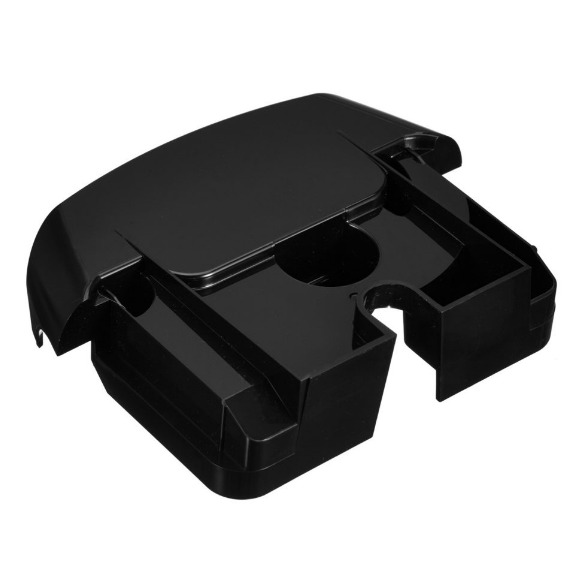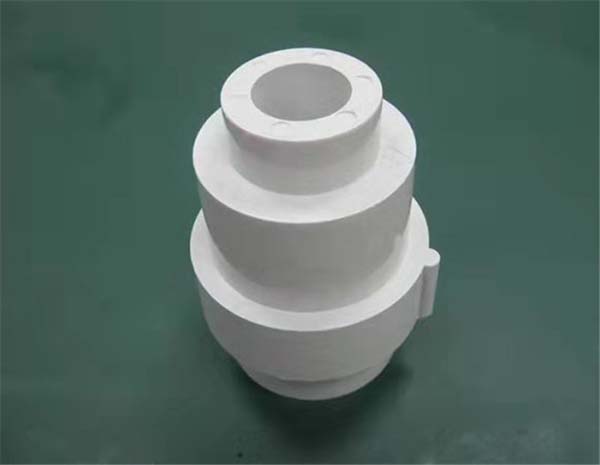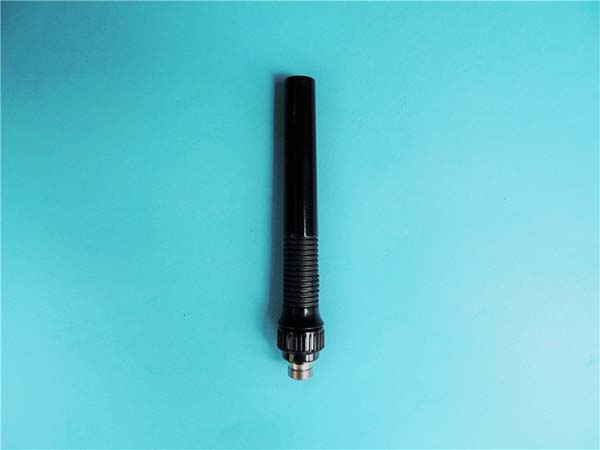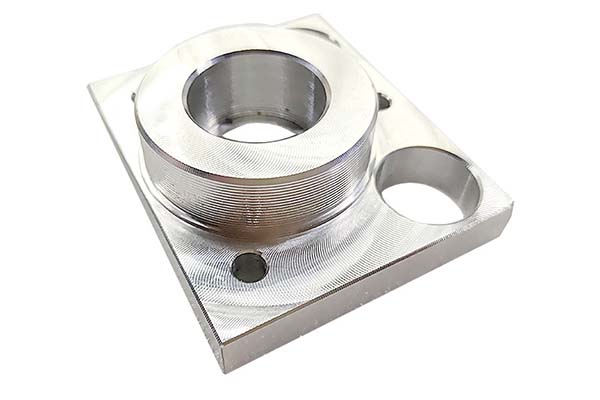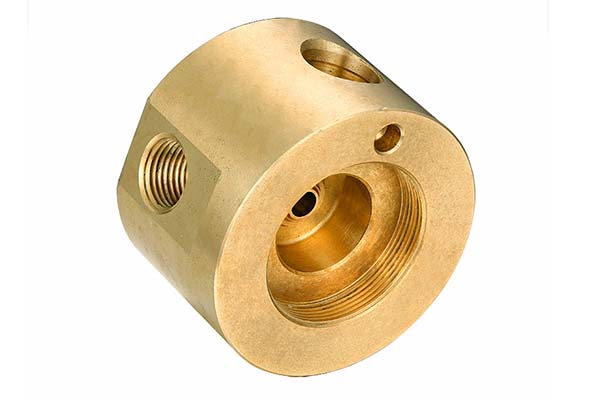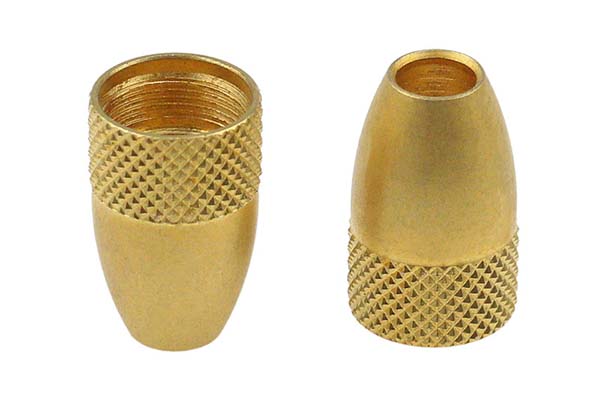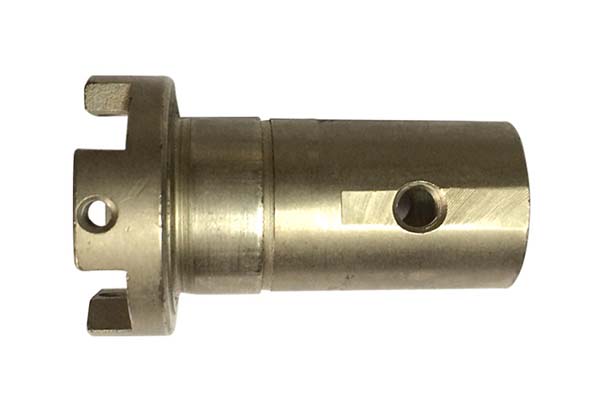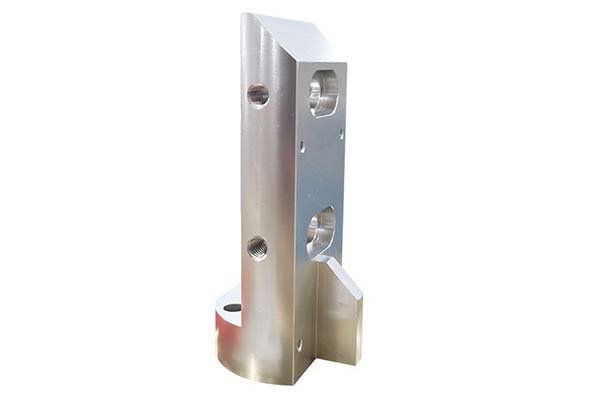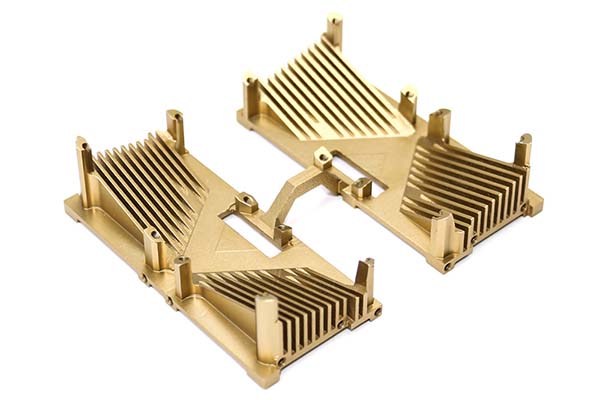1. Introduction
In the highly competitive business landscape of today, every decision and investment a company makes can significantly impact its success. Among the numerous elements that contribute to a company's growth and efficiency, precision machined parts stand out as a cornerstone for many industries. Whether you're in the automotive, aerospace, medical, or electronics sector, the quality and precision of the parts used in your products can make or break your business.
Precision machined parts are components that are manufactured with extremely tight tolerances, often measured in micrometers. This high level of accuracy ensures that the parts fit together perfectly, function optimally, and meet the strictest industry standards. The significance of these parts lies in their ability to enhance the performance, reliability, and durability of the final products. For instance, in the aerospace industry, a single faulty or imprecisely machined part could lead to catastrophic consequences. In medical devices, precision parts are crucial for accurate diagnoses and effective treatments.
Yigu Technology aims to explore in - depth how precision machined parts can benefit your business. We will look at various aspects such as cost - effectiveness, quality improvement, innovation facilitation, and their role in meeting industry regulations. By understanding these benefits, you'll be better equipped to make informed decisions about whether investing in precision machined parts is the right move for your business.
2. Enhanced Product Quality
2.1 High - Precision Manufacturing
One of the most significant advantages of precision machined parts is their high - precision manufacturing process. Precision machining techniques, such as Computer Numerical Control (CNC) machining, Electrical Discharge Machining (EDM), and grinding, enable manufacturers to achieve extremely tight tolerances. These tolerances can be as small as a few micrometers, which is far beyond what traditional manufacturing methods can achieve.
For Yigu Technology example, in the production of components for semiconductor manufacturing equipment, the tolerance requirements are often within ±0.001mm. Precision machined parts produced through advanced CNC machining can meet these strict requirements. This high - level accuracy is crucial because even the slightest deviation in the dimensions of a part can lead to problems in the final product. In the case of semiconductor equipment, a misaligned or imprecisely machined part could cause issues such as signal interference or component malfunction, which can be extremely costly to fix or may even render the entire product unusable. By ensuring that parts are manufactured with such high precision, the likelihood of these problems occurring is greatly reduced, resulting in a lower 次品率. According to industry statistics, companies that switch to precision machined parts in their semiconductor manufacturing processes can reduce their 次品率 by up to 50%, leading to significant cost savings in terms of rework and waste reduction.
2.2 Consistency in Production
Precision machining also ensures a high degree of consistency in production. Automated precision machining processes, like CNC machining, rely on pre - programmed instructions to fabricate parts. This means that every part produced is an exact replica of the digital model, with the same dimensions, surface finish, and material properties.
Take the automotive industry as an example. Engine components, such as pistons and crankshafts, need to be produced with utmost consistency. If there are variations in the size or shape of these parts, it can lead to engine imbalance, reduced fuel efficiency, and increased emissions. Precision machined pistons and crankshafts, produced through CNC machining, have a consistent quality that ensures smooth engine operation. A study by a leading automotive research firm found that engines using precision - machined components had a 15% improvement in fuel efficiency compared to engines with components of inconsistent quality. This consistency not only improves the performance of the final product but also enhances its reliability and durability. Customers expect products to perform consistently over time, and precision machined parts play a vital role in meeting these expectations.
3. Cost - Efficiency in the Long Run
3.1 Reduced Waste
Precision machining significantly reduces material waste, which is a major cost - saving factor for businesses. Traditional manufacturing methods often result in a substantial amount of wasted raw materials due to less - accurate cutting, shaping, and forming processes. In contrast, precision machining techniques, such as Computer - Aided Design (CAD) and Computer - Aided Manufacturing (CAM), allow for highly precise material usage planning.
For example, in the aerospace industry, where materials like titanium and high - strength alloys are extremely expensive, precision machining can make a huge difference. A study by a leading aerospace manufacturing company found that by switching to precision machining for the production of aircraft engine components, they were able to reduce material waste by up to 30%. CAD software enables engineers to design parts with optimal shapes and sizes, minimizing the amount of excess material that needs to be removed during the machining process. CAM then ensures that the actual machining operations are carried out with the highest level of precision, following the exact design specifications.
In the automotive industry, precision machining also plays a crucial role in waste reduction. For instance, when manufacturing engine blocks, precision casting and machining processes can ensure that the final product requires minimal post - processing and material removal. This not only reduces the amount of wasted metal but also shortens the production cycle, further saving costs associated with labor and energy consumption.
3.2 Lower Maintenance and Replacement Costs
Precision machined parts contribute to lower maintenance and replacement costs over the long term. When parts are manufactured with high precision, they fit together perfectly within the machinery, reducing friction, wear, and tear. This leads to a significant decrease in the frequency of maintenance and the need for part replacements.
Take industrial machinery as an example. A factory that uses precision machined gears in its production equipment experiences fewer breakdowns and less frequent gear replacements compared to a factory using lower - quality gears. According to industry data, precision machined gears can have a lifespan that is 2 - 3 times longer than standard gears. This means that the factory can save on the costs of purchasing new gears, as well as the labor costs associated with replacing them.
In the medical device industry, precision machined parts are essential for ensuring the long - term reliability of equipment. For Yigu Technology example, in MRI machines, precision - made components such as magnetic coils and mechanical actuators need to operate flawlessly for extended periods. High - precision parts reduce the risk of equipment malfunctions, which can be extremely costly in terms of both patient care and the financial losses associated with equipment downtime. A medical research institution found that by using precision machined parts in their MRI machines, they were able to reduce maintenance costs by 40% over a five - year period. This is because the precise fit and operation of the parts minimized the need for frequent adjustments, repairs, and replacements.
4. Customization Options
4.1 Meeting Unique Business Needs
Precision machining offers a high degree of customization, allowing businesses to create parts that meet their unique design and production requirements. With the help of advanced CAD/CAM software, engineers can design parts with complex geometries and unique features that are tailored to the specific needs of the product.
For example, in the medical device industry, many devices require custom - made parts to ensure a perfect fit and optimal functionality. A company developing a new type of surgical instrument may need a precision - machined handle with a specific ergonomic design, as well as custom - made components for the cutting or grasping mechanisms. Precision machining can bring these unique designs to life. The ability to produce parts with tight tolerances also means that even the most intricate and detailed designs can be accurately reproduced. This level of customization is not easily achievable with mass - production methods, which often rely on standardized designs.
In the electronics industry, precision machined parts are used to create custom enclosures for high - end devices. These enclosures need to be precisely designed to fit all the internal components, while also providing features such as heat dissipation and electromagnetic shielding. Precision machining allows for the creation of enclosures with complex shapes and precise cutouts for connectors and ports, ensuring that the final product meets the exact specifications required.
4.2 Adapting to Market Changes
The customization capabilities of precision machining also enable businesses to quickly adapt to market changes. In today's fast - paced business environment, consumer demands and market trends can change rapidly. By having the flexibility to produce customized precision - machined parts, companies can respond to these changes more effectively.
Consider the automotive industry, which is constantly evolving to meet new trends such as electric vehicles and autonomous driving. Automotive manufacturers need to be able to quickly develop and produce new components to support these changes. Precision machining allows them to design and manufacture custom parts for electric vehicle powertrains, such as high - precision battery enclosures and motor components. These parts can be optimized for performance, weight, and energy efficiency, helping the manufacturers stay competitive in the market.
Another example is the consumer electronics market, where product lifecycles are getting shorter. A smartphone manufacturer may want to introduce a new model with a unique form factor or additional features. With precision machining, they can rapidly prototype and produce custom - made parts for the new design, reducing the time it takes to bring the new product to market. This agility in production can give companies a significant advantage over their competitors, allowing them to capture market share by being the first to offer new and improved products.
5. Yigu Technology's View
As a non - standard plastic and metal products custom supplier, Yigu Technology deeply understands the benefits of precision machined parts for businesses. Precision machined parts are the key to enhancing product competitiveness. In a market full of fierce competition, products with high - quality precision parts stand out. They can improve the overall performance of the product, making it more reliable and durable, which is bound to attract more customers.
Moreover, precision machining enables us to meet diverse customer customization needs. Whether it's a unique design for a new product or modifications to an existing part, our precision machining capabilities ensure that we can turn customer ideas into reality. This flexibility in customization not only satisfies individual customer demands but also helps our clients stay ahead in a rapidly changing market. By providing high - quality precision machined parts, we contribute to our clients' business success, from improving product quality to reducing production costs in the long run.
7. FAQ
7.1 What industries can benefit most from precision machined parts?
Industries that require high - precision components can benefit significantly from precision machined parts. The aerospace industry tops the list. Aircraft engines, for example, demand parts with extremely tight tolerances. A study by Boeing showed that using precision machined parts in their engines improved fuel efficiency by 8 - 10% and reduced maintenance requirements by 30%. The medical industry also highly benefits. In surgical instruments and implantable devices, precision is crucial for patient safety and the effectiveness of treatments. In the automotive industry, precision machined parts enhance engine performance, fuel efficiency, and vehicle safety. For instance, high - precision fuel injectors can improve fuel combustion efficiency by up to 15%, reducing emissions and saving fuel costs.
7.2 How does the cost of precision machined parts compare to standard parts?
Precision machined parts may have a higher upfront cost compared to standard parts. The advanced manufacturing techniques, high - skilled labor, and high - quality materials involved in precision machining contribute to this. However, in the long run, they are often more cost - effective. A research by a leading manufacturing consultancy found that in industrial machinery, although precision machined gears cost 20 - 30% more initially than standard gears, they had a lifespan 2 - 3 times longer. This led to significant savings in replacement and maintenance costs over time. Additionally, precision machined parts reduce waste, as they are produced with high accuracy, minimizing the need for rework and material scrap, which further adds to the long - term cost - savings.
7.3 What is the typical lead time for custom precision machined parts?
The lead time for custom precision machined parts varies widely. It depends on factors such as the complexity of the part, the materials required, and the production volume. For simple custom parts with readily available materials and in small production runs, the lead time could be as short as 1 - 2 weeks. However, for highly complex parts with hard - to - obtain materials and large production volumes, it could take 8 - 12 weeks or even longer. For example, in the aerospace industry, where parts often have complex geometries and strict quality requirements, custom precision machined parts for a new aircraft model may take several months to produce. It's always best to communicate with the precision machining supplier to get an accurate estimate based on your specific requirements.
